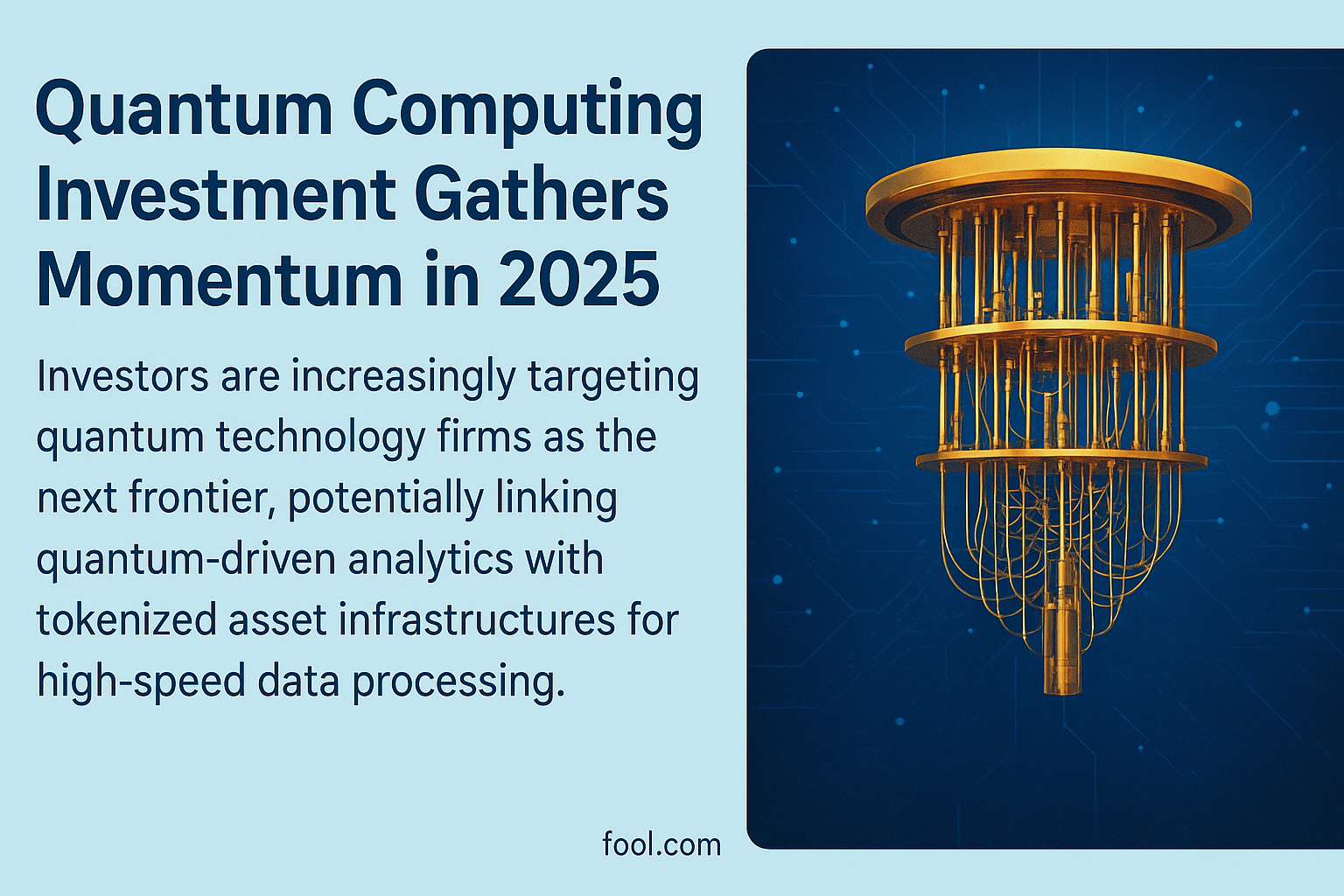In 2025, quantum computing has stepped firmly into the investment spotlight, capturing the attention of venture capitalists, institutional investors, and technology funds worldwide. Once considered an experimental domain confined to research labs, quantum technology is now being recognized as a transformative force capable of reshaping industries from finance and logistics to pharmaceuticals and climate science.
The latest surge in investment is fueled by the convergence of quantum computing’s growing capabilities with other cutting-edge innovations—particularly blockchain and tokenized asset infrastructures. Investors see the potential for quantum-driven analytics to revolutionize high-speed data processing, enabling complex simulations, advanced risk modeling, and near-instant decision-making in markets where milliseconds can mean millions.
A key driver behind this trend is the maturation of quantum hardware. Companies such as IBM, Google, and several fast-growing startups have made breakthroughs in error correction, qubit stability, and scalability—three major hurdles that once limited the technology’s commercial viability. As quantum processors become more reliable, their integration with real-world business applications moves from speculative to strategic.
Financial markets are particularly intrigued by the synergy between quantum computing and tokenized assets. In this scenario, quantum algorithms could be applied to massive datasets from decentralized finance (DeFi) platforms, optimizing asset allocation, identifying arbitrage opportunities, and even predicting systemic risks with unparalleled precision. This capability could transform how global markets operate, making them faster, more transparent, and potentially more secure.
Governments are also adding momentum to the trend. The U.S., EU, China, and Japan have all expanded their quantum research funding, creating a competitive landscape where innovation is both a technological race and a geopolitical priority. Alongside public investment, private equity firms and sovereign wealth funds are moving in aggressively, seeking early stakes in companies that could define the next digital era.
While challenges remain—such as the enormous energy requirements, the need for specialized infrastructure, and the potential cybersecurity implications—investor optimism is high. The consensus is that early movers in quantum computing stand to gain a decisive advantage, much like those who invested in the internet during its formative years.
If current trends continue, the coming decade could see quantum computing emerge not just as a niche technology but as a foundational layer of the global economy. And for investors, 2025 may be remembered as the year the quantum era truly began.




